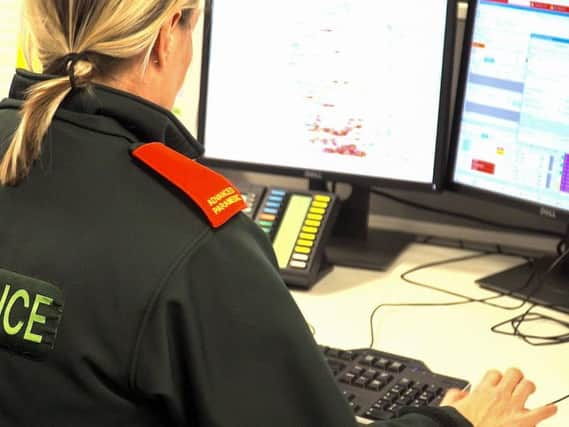Ambulance hoax caller costs NHS £25,000 after ringing 344 times in six months


Thomas Exhall, who was often intoxicated and verbally abusive towards call-handlers and ambulance crews who attended him, rang the service 344 times in six months.
Another frequent caller, Victoria Cross, who called the service 200 times in just over two weeks, said she was "bored and didn't care about anyone else".
Advertisement
Hide AdAdvertisement
Hide AdEast Midlands Ambulance service (EMAS) said Exhall, from Mansfield Woodhouse, Nottinghamshire, made the 999 and 111 calls between December 2017 and April 2018 - with his actions costing the NHS a total of £24,883.
He appeared at Mansfield Magistrates' Court on January 14 where he denied making the calls and abusive behaviour.
Exhall was found guilty by magistrates, given a six-month conditional discharge, and ordered to pay £400 in compensation to EMAS.
The ambulance service said he would often discharge himself from hospital and ring 999 or 111 again when he arrived at home.
Advertisement
Hide AdAdvertisement
Hide AdCross, from Moira, Leicestershire, made her calls between Christmas and New Year - with one leading to a one-minute delay for a child in cardiac arrest.
At Leicester Magistrates' Court, she was ordered to pay £165 in fines and was given a conditional discharge for 18 months, EMAS said.
Once she realised her number had been blocked, Cross bought different SIM cards for her mobile phone in order to continue making the calls.
Deborah Powell, Frequent Caller Lead for EMAS, said: "We are pleased that we have had two successful prosecutions after a lot of hard work.
Advertisement
Hide AdAdvertisement
Hide Ad"We would urge people again to make the right 999 call and only phone us in a life-threatening emergency.
"Our staff come to work to save lives and help people, not to be abused.
"We will continue to work with police to prosecute those who misuse our service to ensure that the support is there for those who need it in a real medical emergency."